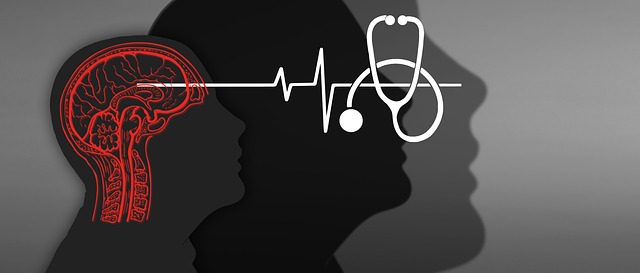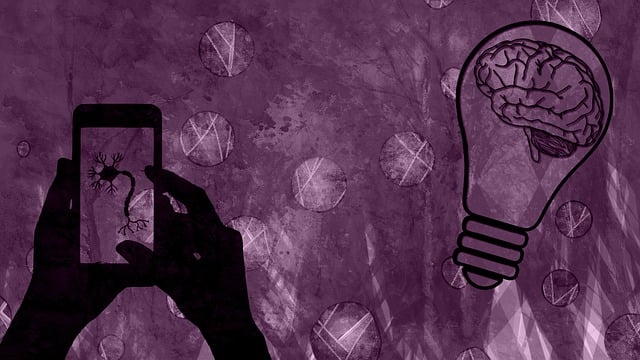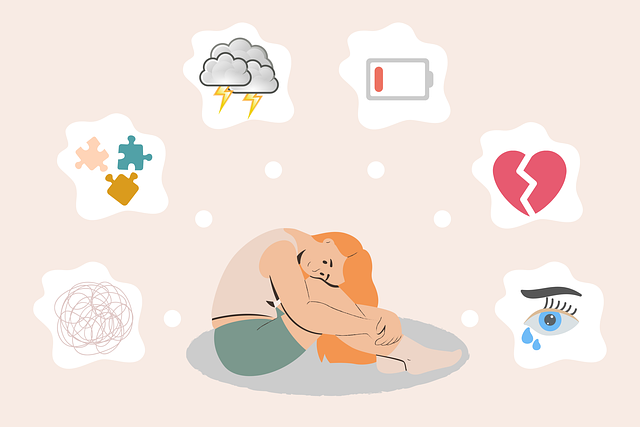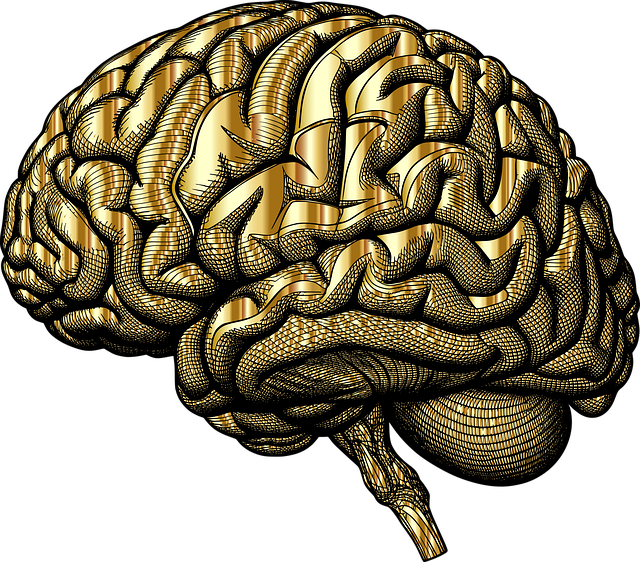Chronic stress, detrimental when prolonged, can trigger mental health issues like anxiety, depression, and bipolar disorder. Recognizing signs of stress overload, such as constant worry, fatigue, irritability, and poor concentration, is crucial. Effective stress reduction methods, including mindfulness, exercise, and therapy like Aurora Bipolar Disorder Therapy (ABDT), are vital for mental wellness. ABDT focuses on emotional dysregulation in bipolar individuals, integrating evidence-based practices to empower clients in managing their emotional patterns and triggers. Prioritizing self-care, incorporating mindfulness, physical activity, social connections, and community initiatives, along with culturally competent healthcare, can significantly enhance well-being and resilience against stress.
Stress reduction is a vital aspect of maintaining mental health, and understanding its impact on our well-being is the first step. In this article, we explore various methods to combat stress, focusing on innovative treatments like Aurora Bipolar Disorder Therapy as a promising approach. We’ll delve into how daily routines can be enhanced with effective stress management techniques, offering insights into improving mental resilience. Discover practical ways to navigate and reduce stress, ultimately fostering a healthier mind.
- Understanding Stress and Its Impact on Mental Health
- Aurora Bipolar Disorder Therapy: A Promising Approach for Stress Reduction
- Incorporating Effective Stress Management Techniques into Daily Life
Understanding Stress and Its Impact on Mental Health

Stress is a natural response to various life challenges, but when it becomes chronic, it can significantly impact mental health. It’s essential to understand that stress isn’t always negative; acute stress can enhance performance and focus. However, prolonged exposure to stressful situations or an inability to manage stress effectively can lead to mental health issues such as anxiety disorders, depression, and in severe cases, bipolar disorder. The impact of chronic stress on the brain is profound, affecting memory, mood regulation, and even structural changes in brain regions associated with emotional processing.
Recognizing the signs and symptoms of stress overload is crucial for maintaining mental wellness. This may include feelings of constant worry, fatigue, irritability, and difficulty concentrating. Engaging in stress reduction methods like mindfulness practices, regular exercise, and therapy can be transformative. For instance, Aurora Bipolar Disorder Therapy offers specialized support for individuals navigating bipolar disorder, incorporating techniques to manage stress and stabilize moods. Additionally, the Mental Wellness Podcast Series Production provides accessible resources for learning about various mental health topics, while Mental Health Policy Analysis and Advocacy drive conversations around improving access to care. Emotional healing processes are integral to overall mental health, and prioritizing self-care is a powerful step towards fostering resilience against stress’s detrimental effects.
Aurora Bipolar Disorder Therapy: A Promising Approach for Stress Reduction

Aurora Bipolar Disorder Therapy (ABDT) has emerged as a promising approach for stress reduction, particularly among individuals dealing with bipolar disorder. This innovative therapy focuses on addressing emotional dysregulation, a core aspect of bipolar management, by helping clients develop coping strategies and enhance self-esteem. ABDT integrates evidence-based practices tailored to the unique needs of each individual, fostering a sense of control and resilience in navigating life’s challenges.
Through personalized sessions, mental wellness coaching programs within ABDT guide individuals in understanding their emotional patterns and triggers. This awareness empowers them to implement effective strategies for managing stress and mood fluctuations. By prioritizing emotional regulation as a cornerstone of treatment, ABDT not only supports symptom reduction but also promotes overall mental wellness, leading to improved quality of life and enhanced self-esteem.
Incorporating Effective Stress Management Techniques into Daily Life

Incorporating effective stress management techniques into daily life is a powerful step towards enhancing overall well-being, particularly for individuals navigating conditions like bipolar disorder. Aurora Bipolar Disorder Therapy emphasizes the importance of self-care and coping strategies tailored to each person’s unique needs. Through dedicated practice, simple yet profound changes can be made. For instance, mindfulness meditation has proven effective in reducing stress and improving mood regulation. By taking a few minutes each day to focus on breath and present moments, individuals can gain a sense of calm and clarity.
Additionally, engaging in regular physical activity releases endorphins, naturally boosting mood and providing an outlet for tension. Social connections are another vital component; reaching out to friends, family, or support groups offers a sense of belonging and understanding. Community Outreach Program Implementation initiatives that promote these activities can significantly benefit mental health. Conflict Resolution Techniques learned through training with healthcare providers who possess Cultural Competency Training can further equip individuals to handle stressors effectively, fostering resilience and a more positive outlook on life’s challenges.
Stress reduction is a vital aspect of maintaining mental health, and various techniques can help manage it effectively. From understanding stress triggers to incorporating specific therapies like Aurora Bipolar Disorder Therapy, individuals have numerous tools at their disposal. By adopting these strategies into daily routines, one can navigate life’s challenges with resilience and promote overall well-being.














